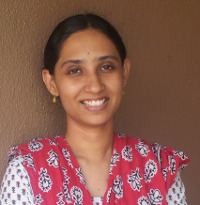Syllabus
Chapter 1: Flipped Classes
What are flipped classes? How can they help us in the current Covid situation?
a. Flipped Classes for Effective Teaching and Learning
a. Flipped Classes for Effective Teaching and Learning
Chapter 2: BodhiTree Platform
What is BodhiTree? How does it help teachers conduct online classes? What are its various features and how to use them?
a. BodhiTree Overview
b. Creating Course and Populating with Content
c. Enrolling Students (and TAs) and Interacting with them
d. Tracking Student Performance and Sharing Marks
e. Handling Assignments/Labs
f. Handling Programming Assignments
a. BodhiTree Overview
b. Creating Course and Populating with Content
c. Enrolling Students (and TAs) and Interacting with them
d. Tracking Student Performance and Sharing Marks
e. Handling Assignments/Labs
f. Handling Programming Assignments
Chapter 3: SAFE Platform
a. SAFE Overview
b. SAFE Usage Overview
c. SAFE Login
d. Course creation and configuration
e. Student registration in course
f. Attendance using SAFE
g. SAFE Quiz Overview
h. Quiz Settings in SAFE
i. Questions types and category
j. Quiz upload using file
k. Live Monitoring of Quiz
l. Post Exam Features in SAFE
m. Misc Features in SAFE
n. E-Correction/Manual Grading in SAFE
b. SAFE Usage Overview
c. SAFE Login
d. Course creation and configuration
e. Student registration in course
f. Attendance using SAFE
g. SAFE Quiz Overview
h. Quiz Settings in SAFE
i. Questions types and category
j. Quiz upload using file
k. Live Monitoring of Quiz
l. Post Exam Features in SAFE
m. Misc Features in SAFE
n. E-Correction/Manual Grading in SAFE
Level
For all teachers
Prerequisites
None
Category
Self-paced
Estimated Time
10 hours
Meet the instructors

Kameswari Chebrolu
Kameswari Chebrolu is currently an associate professor with the Department
of Computer Science and Engineering at the Indian Institute of Technology, Bombay, India. She received her
Ph.D. degree in Electrical and Computer engineering from the University of California at San Diego in 2004.
She is passionate about teaching and likes to experiment with various techniques to improve learning. She has
been a recipient of the “IIT Bombay Excellence in Teaching” award in 2010.
The focus of Kameswari's research work is on developing cutting-edge technology for real-world use. In the past, she has worked on projects aimed at providing Internet access to rural villages, enabling voice communication in remote tribal areas, monitoring the health of railway bridges. Currently she is focused on developing smart educational technology, AI-human-hybrid technology that caters to the information needs of bottom of the pyramid and countering fake news on social media, specifically on Whatsapp.
The focus of Kameswari's research work is on developing cutting-edge technology for real-world use. In the past, she has worked on projects aimed at providing Internet access to rural villages, enabling voice communication in remote tribal areas, monitoring the health of railway bridges. Currently she is focused on developing smart educational technology, AI-human-hybrid technology that caters to the information needs of bottom of the pyramid and countering fake news on social media, specifically on Whatsapp.

Varsha Apte
Varsha Apte is currently an associate professor with the Department
of Computer Science and Engineering at the Indian Institute of Technology, Bombay, India. She did Bachelors in Mathematics from Mumbai University
in 1987, followed by Masters in Computer Science from Pune University, in 1989. She completed her PhD in Computer Science from Duke
University in 1994.
Her core interest and expertise is in solving performance modeling and management problems using Queuing Systems and other Stochastic Models. Whenever possible she prefers applying rigourous analytical techniques for analysis and control of performance, rather then empirical techiniques. She likes to build tools that facilitate and simplify the process of applying such techniques. Over the last nearly 20 years, She has worked in overload control of Web servers, Wireless LAN performance models, control theoretic QoS control of Wireless LAN and Web servers, performance modeling and measurement multi-tier data center applications.
Her core interest and expertise is in solving performance modeling and management problems using Queuing Systems and other Stochastic Models. Whenever possible she prefers applying rigourous analytical techniques for analysis and control of performance, rather then empirical techiniques. She likes to build tools that facilitate and simplify the process of applying such techniques. Over the last nearly 20 years, She has worked in overload control of Web servers, Wireless LAN performance models, control theoretic QoS control of Wireless LAN and Web servers, performance modeling and measurement multi-tier data center applications.

Bhaskaran Raman
Bhaskaran Raman received his B.Tech in Computer Science and Engineering
from Indian Institute of Technology, Madras in May 1997. He received his M.S. and Ph.D. in Computer Science
from University of California, Berkeley, in 1999 and 2002 respectively. He was a faculty in the CSE department at
Indian Institute of Technology, Kanpur (India) from June 2003. Since July 2007, he is a faculty at the CSE
department at Indian Institute of Technology, Bombay (India).
His research interests and expertise are in communication networks, wireless/mobile networks, and technology for education. His current focus and specific interests are mobile crowdsensing, WiFi performance diagnosis, and use of technology in large classrooms for effective teaching.
His research interests and expertise are in communication networks, wireless/mobile networks, and technology for education. His current focus and specific interests are mobile crowdsensing, WiFi performance diagnosis, and use of technology in large classrooms for effective teaching.

